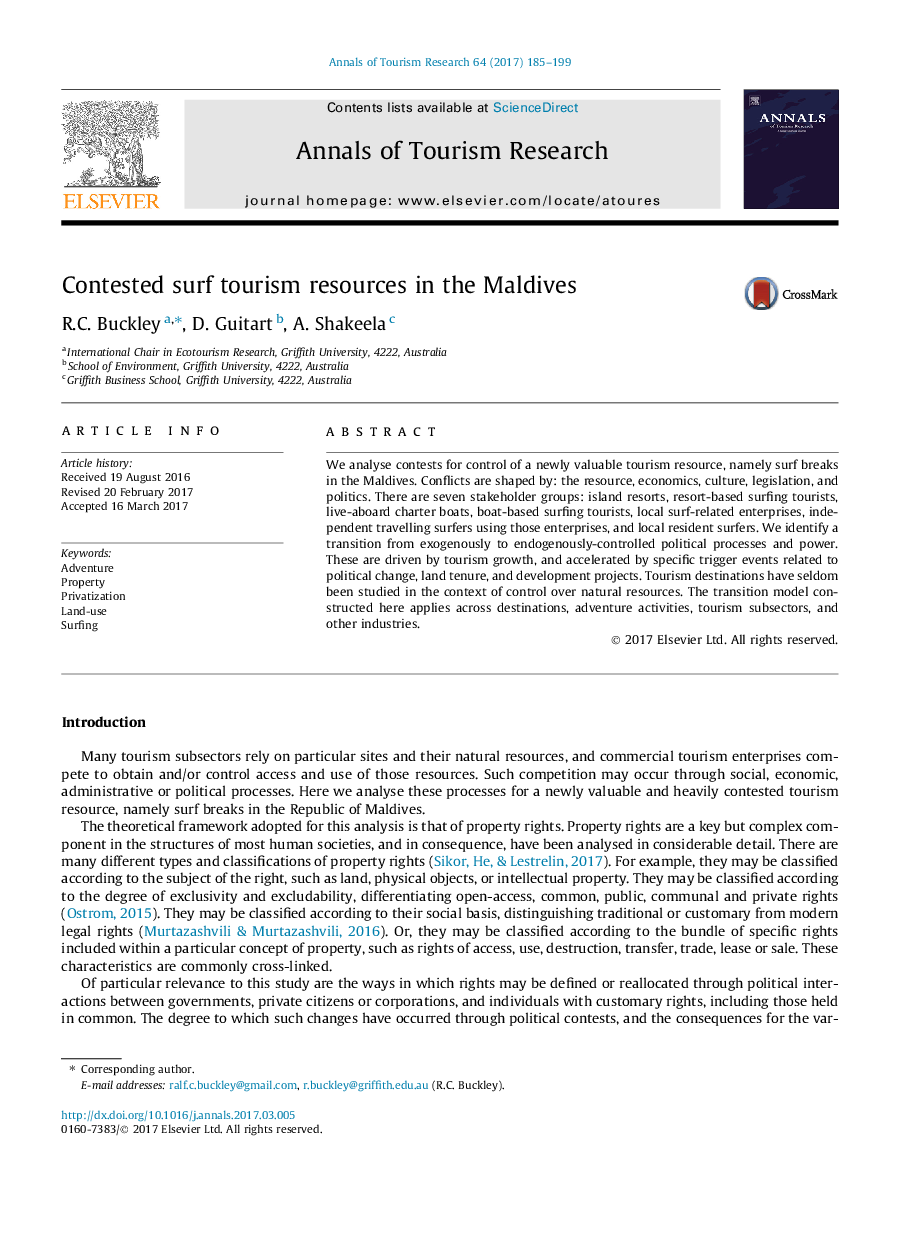| Article ID | Journal | Published Year | Pages | File Type |
|---|---|---|---|---|
| 5107851 | Annals of Tourism Research | 2017 | 15 Pages |
Abstract
We analyse contests for control of a newly valuable tourism resource, namely surf breaks in the Maldives. Conflicts are shaped by: the resource, economics, culture, legislation, and politics. There are seven stakeholder groups: island resorts, resort-based surfing tourists, live-aboard charter boats, boat-based surfing tourists, local surf-related enterprises, independent travelling surfers using those enterprises, and local resident surfers. We identify a transition from exogenously to endogenously-controlled political processes and power. These are driven by tourism growth, and accelerated by specific trigger events related to political change, land tenure, and development projects. Tourism destinations have seldom been studied in the context of control over natural resources. The transition model constructed here applies across destinations, adventure activities, tourism subsectors, and other industries.
Related Topics
Social Sciences and Humanities
Business, Management and Accounting
Tourism, Leisure and Hospitality Management
Authors
R.C. Buckley, D. Guitart, A. Shakeela,
